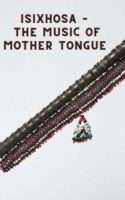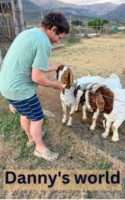IsiXhosa is a rich language; you can see a Xhosa person from far away. The confidence in the way they speak tells you exactly who they are. I grew up in the village of Dongwe, near Queenstown. I was raised by Cwerha who is my grandfather. He always motivated me to study and speak in isiXhosa. Back then I didn’t get it – I wanted to learn English for the education and opportunities it would give me.
The older I get though, the more I am starting to appreciate my mother tongue. When I was younger, I didn’t know there was something called “isiXhosa sengingqi”. Directly translated, this means “Xhosa of an area”. This means, depending on where you are or come from, you may be speaking a different isiXhosa dialect compared to people who don’t live there. For example, when I moved to East London, when they greet you with, “Molo”, I would answer back with “Ewe”.
My cousin would constantly laugh at me. In East London the correct thing to say after “Molo” would be, “Ewe ke”. Without the “ke” it sounded disrespectful to them. This may seem like something small, but when you hear it, you understand the difference immediately.
When I moved to Cape Town there was another small but telling difference that exposed where I was from. In Dongwe, shacks are called “ipozi”; in East London it’s called “igali”, but in Cape Town it’s called “intyontombe” or “ihoki”. It’s a small thing but I remember speaking to my neighbour and I used “igali” for shacks and he knew immediately that I wasn’t from Cape Town.
Also, to understand Xhosa people you have to understand clan names. A clan name comes from the oldest ancestor of that family. To Xhosa people the surname is not as important as your clan name when it comes to relations. We are more related by clans than surnames.
My clan name is Mam’cwerha from Ogxarha, ohlahlana, ozibaya zikhulu, vambane, omlawu, opotwana, osiyoyo, omfazi belelinye, abangathi nkosi entwini ngoba bazinkosi ngokwabo, phesheya komlambo (these are both praises and names of Cwerha’s sons, grandsons and great-grandsons). So when someone says “Zithuthe” – meaning introduce yourself – it’s not in the Western context of just saying your name. In the Xhosa tradition, when I introduce myself, I am not only introducing me, but my oldest ancestor who was Cwerha, and the whole family tree.
Some isiXhosa people, depending on their clan, have different ways of speaking the language that only other Xhosa people can tell who they are without even having to explain. This is why it’s important for South Africans to take the time to at least learn why different cultures speak the way they do, in order to understand the language better.
It’s important to learn your own language but it’s also as important to learn other languages – to create a bit more understanding within the “Rainbow Nation”. So, to celebrate mother language day, on 21 February, speak your mother tongue; be proud of it and highlight it as much as you can. Also take the time to learn more about some of the other 11 languages of our rich and diverse country.
This blog is available in isiXhosa here
If you liked this, you may enjoy… our Get to know article on Aphiwe Magida here.
Tell us: What is your home language and what makes it special to you?



